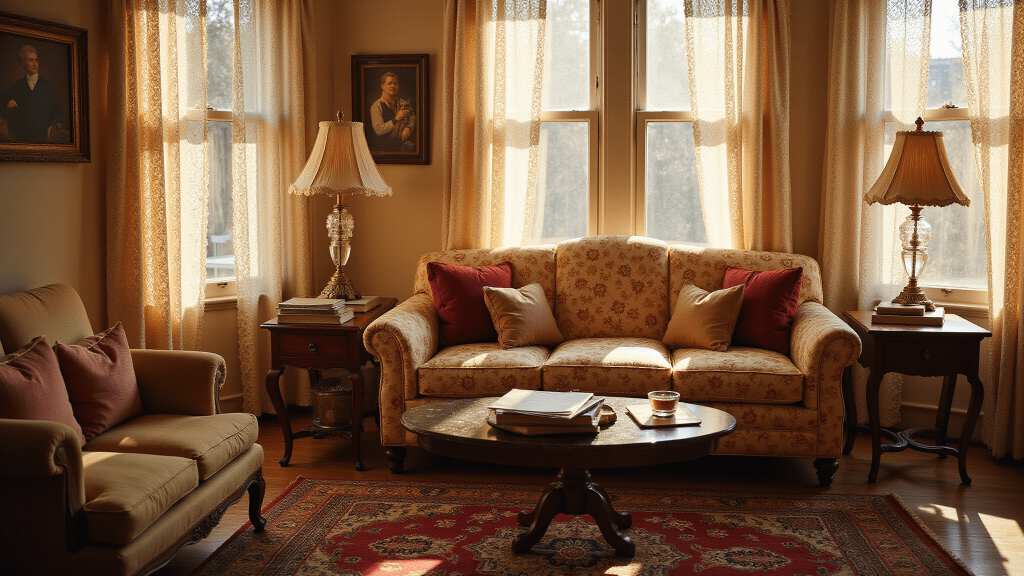Embracing The Granny Chic Revival: How To Create A Cozy Home With Vintage Charm
I remember the first time I walked into my grandmother’s house as a kid. The smell of fresh cookies, the soft embrace of her overstuffed armchair, and those quirky trinkets displayed proudly on every available surface. Little did I know that decades later, I’d be telling people how to recreate that exact feeling in their modern homes.
Granny chic decor has taken the interior design world by storm. It’s not just about doilies and floral prints anymore (though they definitely play a part). This style blends the comfort and character of grandma’s house with contemporary elements that keep it from feeling like a time capsule.
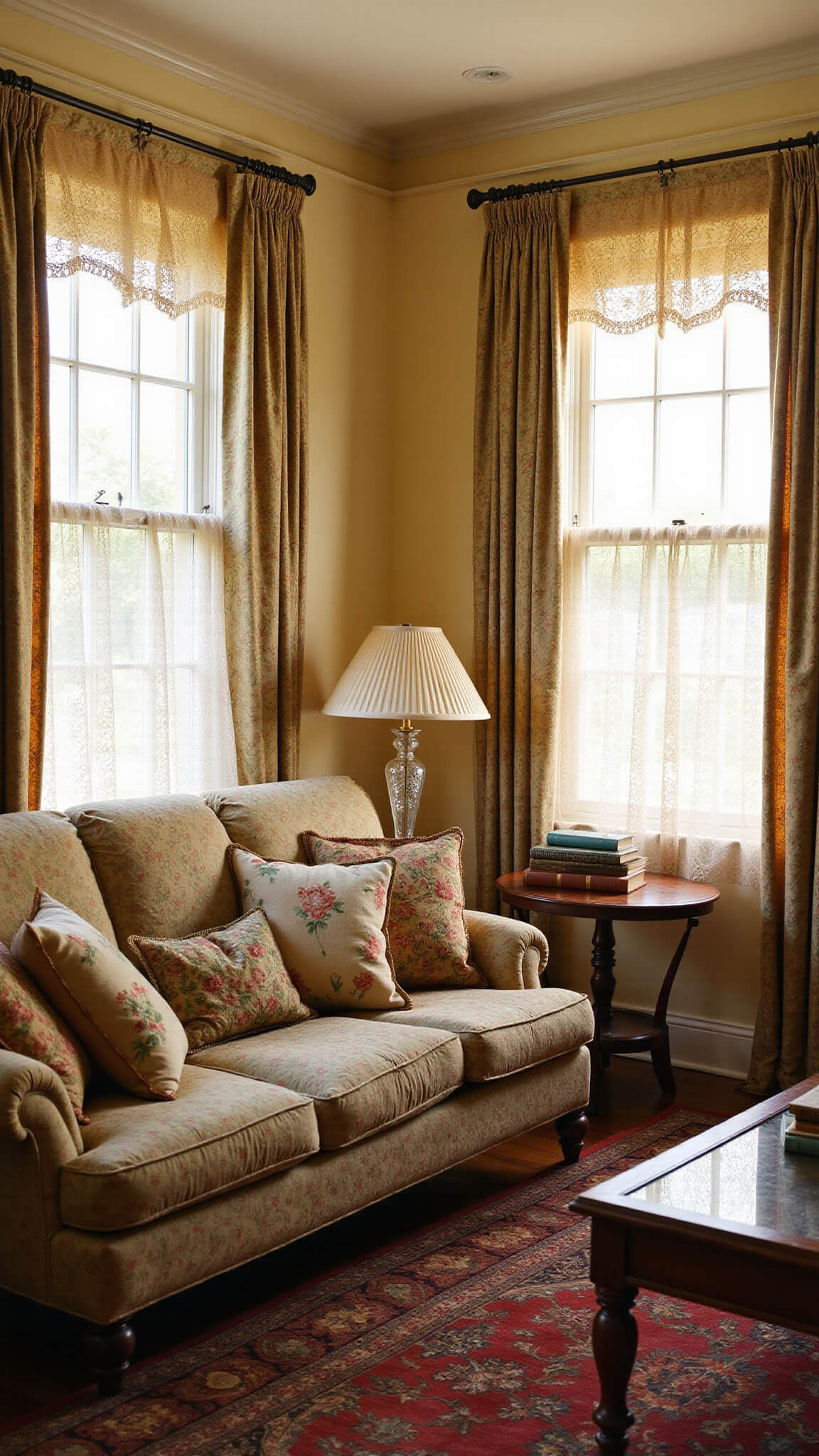

What Exactly Is Granny Chic?
Granny chic (or grandmillennial style if you’re feeling fancy) celebrates those cozy, traditional elements we associate with our grandparents’ homes but with a fresh twist.
It’s like taking your grandmother’s living room and giving it a modern makeover without losing its soul.
This style is the perfect middle finger to the sterile, minimalist trends that have dominated design for years. Instead of empty white spaces and sparse furniture, granny chic embraces fullness, comfort, and personality.
Why People Are Falling In Love With Grandma’s Style Again
There’s something deeply comforting about granny chic that resonates with many of us today. In our fast-paced, digital world, these spaces feel:
- Authentic – Each item has a story and purpose
- Sustainable – Reusing vintage pieces is environmentally friendly
- Personal – No cookie-cutter designs from big box stores
- Comforting – Soft textures and familiar patterns create instant warmth
After spending years in cold, minimalist spaces, people are craving homes that feel lived-in and loved.
Key Elements That Make A Space Truly Granny Chic
1. Embrace Patterns (Yes, Even The Clashing Ones)
My grandmother never met a pattern she didn’t like, and that’s exactly the energy we’re channeling here. Floral prints, chintz, toile, gingham, plaid—mix them all!
How to do it right:
- Start with a larger patterned piece like a sofa or curtains
- Add smaller pattern accents through pillows and lampshades
- Keep some solid colors to give your eyes a place to rest
- Don’t be afraid of wallpaper—even on a single accent wall
The trick is creating a controlled chaos. Your patterns should feel collected over time, not purchased all at once from the same store.
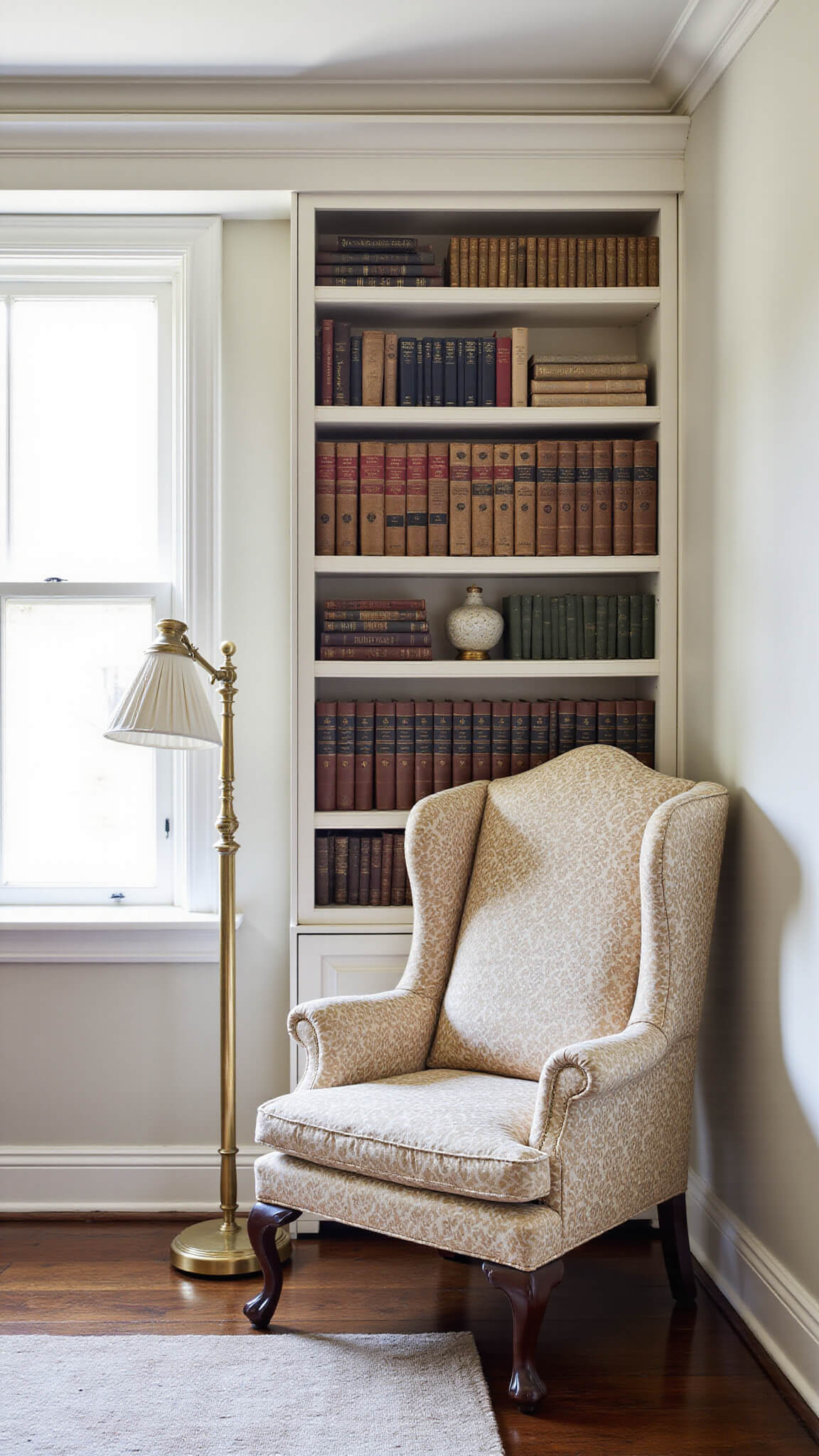

2. Layer Soft, Cozy Textures
Nothing says grandma’s house like being surrounded by touchable textures that make you want to curl up and stay awhile.
Must-have textiles:
- Hand-crocheted afghans draped over chair arms
- Quilts with intricate stitching layered at the foot of beds
- Embroidered pillows with slight imperfections
- Lace doilies protecting wooden surfaces
- Velvet, chenille, and needlepoint upholstery
I’ve found that texture is what transforms a space from simply “decorated” to genuinely inviting. Run your hand across different surfaces in your room—if everything feels the same, you need more texture!
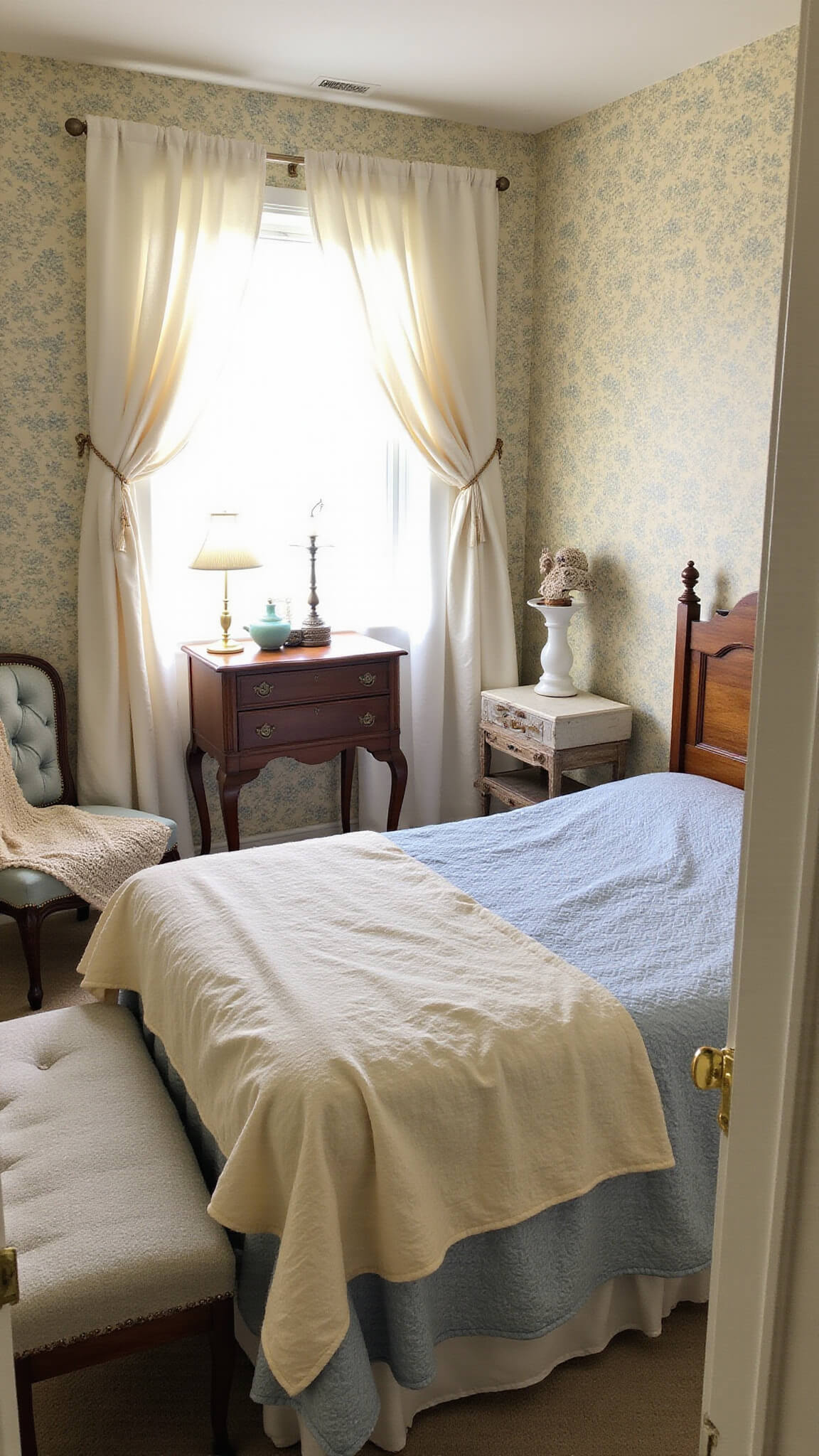

3. Mix Old With New
This is where granny chic differs from simply having an old-fashioned home. The style works best when vintage pieces are balanced with contemporary elements.
Perfect pairings:
- An antique wooden dresser topped with modern geometric lamps
- Vintage oil paintings hanging above a sleek modern sofa
- Traditional china displayed in a contemporary glass cabinet
- Classic wingback chairs reupholstered in bold modern fabrics
This mixing prevents the space from feeling like a museum or time capsule. It creates visual tension that makes a room interesting.
4. Display Collections With Pride
Grandmothers understand something that minimalists don’t—collections tell your story better than any designer piece ever could.
Collectibles that work beautifully:
- Mismatched teacups and saucers
- Vintage hardcover books grouped by color
- Old family photographs in different frames
- Porcelain figurines arranged thoughtfully
- Antique bottles or jars with interesting shapes
The secret is displaying these collections with intention. Group similar items together rather than scattering them throughout a room. And leave some negative space—even maximalism needs breathing room.
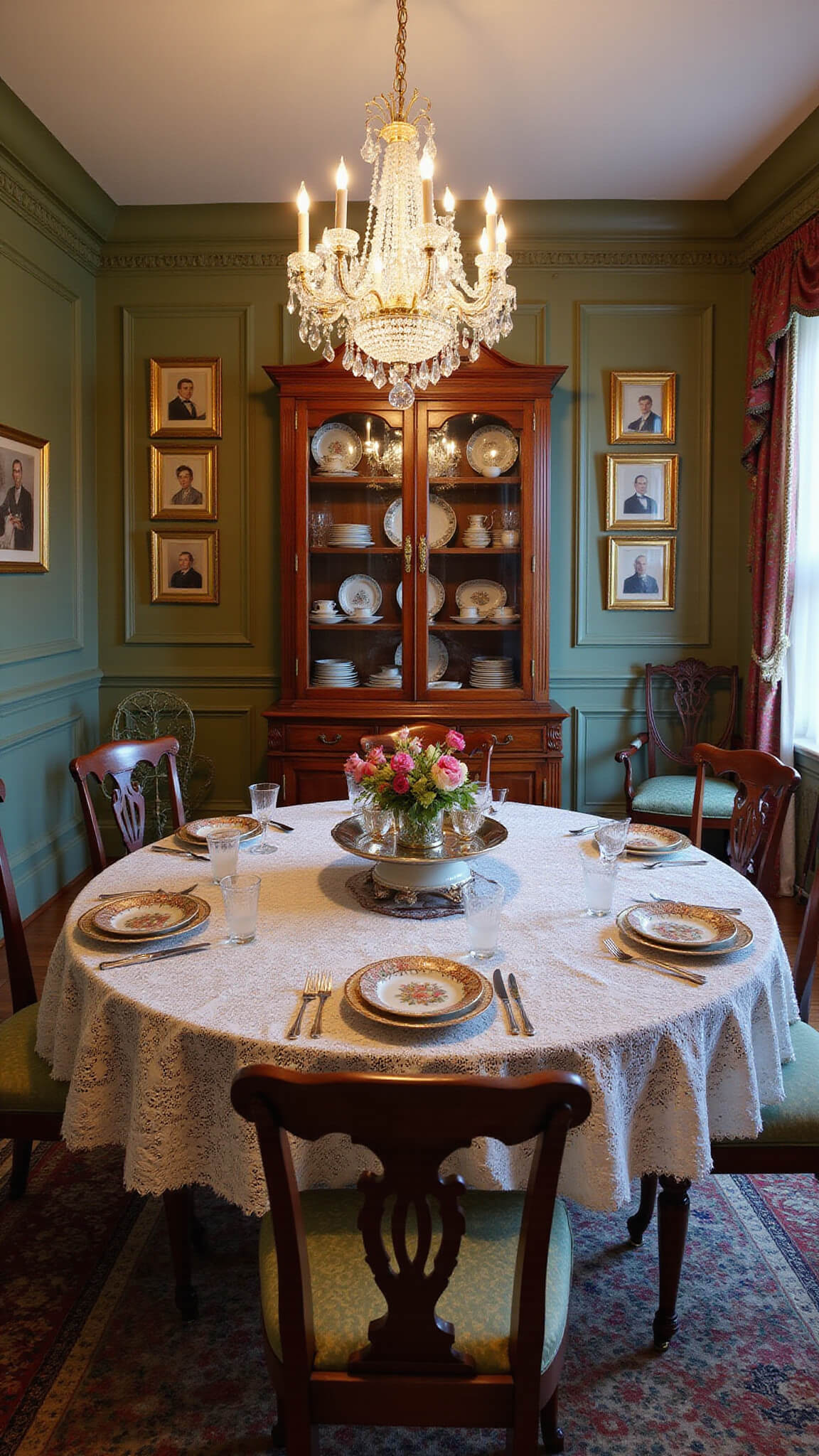

5. Incorporate Traditional Architectural Details
If you’re lucky enough to have a home with original moldings, pocket doors, or built-ins, highlight them! If not, consider adding some architectural character.
Elements worth investing in:
- Crown molding (even simple styles make a difference)
- Wainscoting or beadboard on lower walls
- Ceiling medallions around light fixtures
- Decorative door and window trim
- Vintage-style hardware on cabinets and doors
These details create a framework that supports the granny chic aesthetic and gives it an authentic foundation.
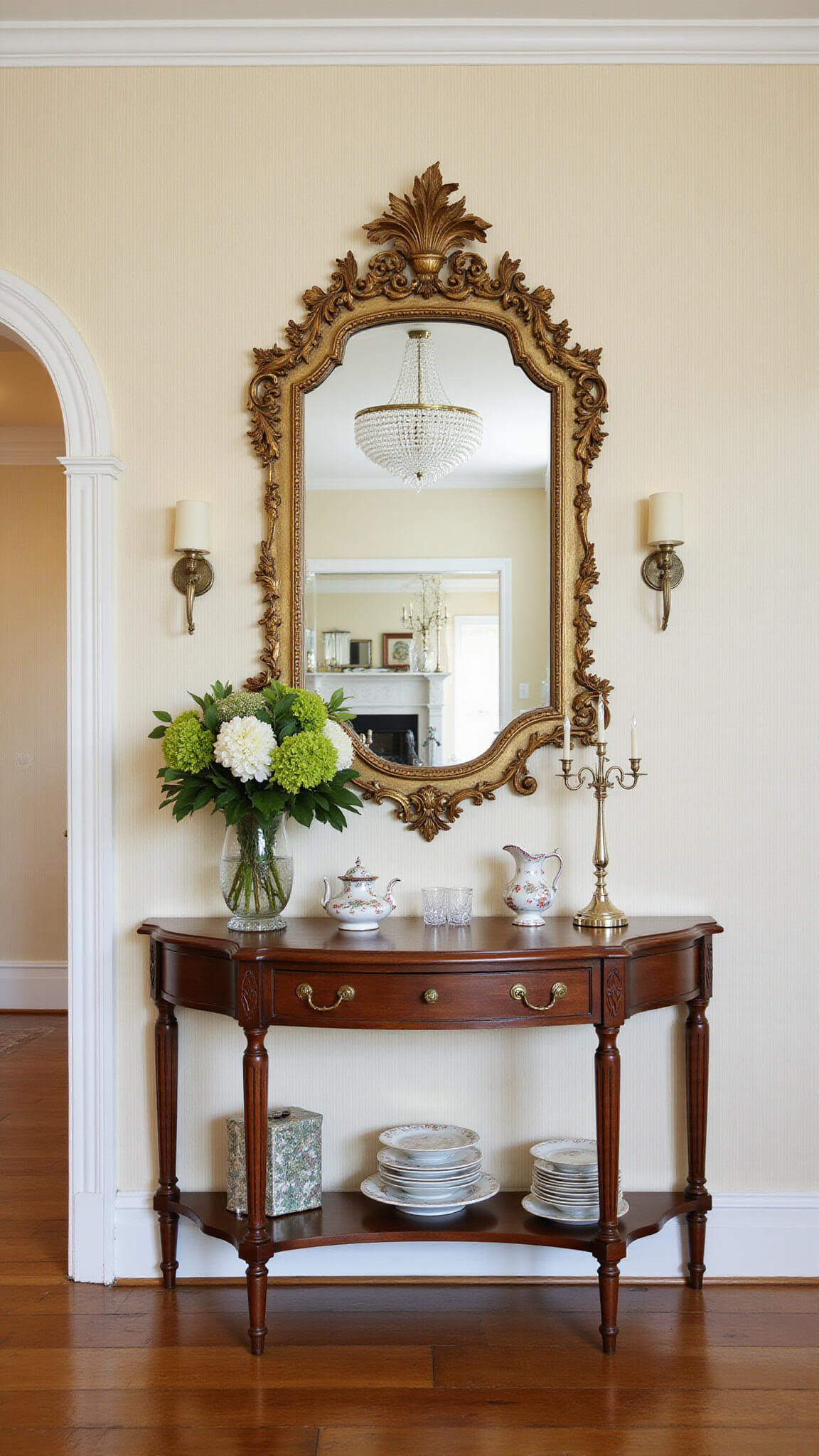

Room-By-Room Granny Chic Guide
Living Room
The living room is where granny chic truly shines. This is where you’ll spend most of your time, so comfort is absolutely essential.
Focus on:
- An overstuffed sofa with plenty of pillows
- At least one wingback or spindle chair
- A coffee table that can hold books, tea cups, and maybe a plant
- Layered rugs—put a patterned one over a larger natural fiber base
- Table lamps with fabric shades that cast a warm glow
- A gallery wall mixing family photos with vintage art
My own living room transformation started with my grandmother’s old wingback chair. I had it reupholstered in a modern botanical print, and it became the anchor piece that guided all my other design choices.
Kitchen
Kitchens can be trickier for granny chic because we all want modern appliances and functionality. The key is adding vintage-inspired touches without sacrificing convenience.
Simple updates:
- Display collections of vintage dishware on open shelving
- Replace cabinet hardware with vintage-style glass or ceramic knobs
- Add a patterned runner rug on the floor
- Use vintage containers to store modern conveniences
- Install a plate rack to show off pretty dishes
- Hang copper pots or vintage utensils

